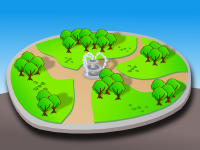Associations to the word «Park»
Noun
- Amusement
- Parking
- Picnic
- Recreation
- Parks
- Walkway
- Bike
- Trailer
- Amenity
- Lawn
- Mall
- Disney
- Driveway
- Avenue
- Boulevard
- Attraction
- Trail
- Visitor
- Yellowstone
- Shopping
- Plaza
- Theme
- Lane
- Tb
- Bs
- Garage
- Ride
- Hyde
- Walt
- Sidewalk
- Car
- Jeep
- Curb
- Limousine
- Beach
- Pickup
- Drove
- Playground
- Headlight
- Lot
- Racetrack
- Newbury
- Lula
- Disneyland
- Truck
- Queens
- Binocular
- Interchange
- Coaster
- Jaguar
- Parkland
- Raceway
- Hangar
- Cadillac
- Gravel
- Attendant
- Mercedes
- Bmw
- Racecourse
- Cars
- Rosa
- Safari
- Belmont
- Sled
- Motel
- Oval
- Sedan
- Volkswagen
- Loren
- Campsite
- Congestion
- Zoo
- Boating
- Toll
- Mustang
- Camping
- Parkway
- Terminal
- Vehicle
- Arboretum
Pictures for the word «Park»
Wiktionary
PARK, noun. An area of land set aside for environment preservation and/or informal recreation.
PARK, noun. A tract of ground kept in its natural state, about or adjacent to a residence, as for the preservation of game, for walking, riding, or the like.
PARK, noun. A piece of ground, in or near a city or town, enclosed and kept for ornament and recreation
PARK, noun. An enclosed parcel of land stocked with animals for hunting, which one may have by prescription or royal grant.
PARK, noun. (US) A grassy basin surrounded by mountains.
PARK, noun. An area used for serious organized purposes.
PARK, noun. (Can we clean up([1]) this sense?) A space occupied by the animals, wagons, pontoons, and materials of all kinds, as ammunition, ordnance stores, hospital stores, provisions, etc., when brought together.
PARK, noun. A partially enclosed basin in which oysters are grown.
PARK, noun. An area zoned for a particular (industrial or technological) purpose.
PARK, noun. (soccer) A pitch; the area on which a match is played.
PARK, noun. (UK) An inventory of matériel.
PARK, noun. (Australia) (NZ) A space in which to leave a car; a parking space.
PARK, verb. (transitive) To bring (something such as a vehicle) to a halt or store in a specified place.
PARK, verb. (transitive) (informal) To defer (a matter) until a later date.
PARK, verb. (transitive) To bring together in a park, or compact body.
PARK, verb. (transitive) To enclose in a park, or as in a park.
PARK, verb. (transitive) (baseball) To hit a home run, to hit the ball out of the park.
PARK, verb. (intransitive) (slang) To engage in romantic or sexual activities inside a nonmoving vehicle.
PARK, verb. (transitive) (informal) (sometimes reflexive) To sit, recline, or put, especially in a manner suggesting an intent to remain for some time.
PARK, verb. (transitive) (finance) To invest money temporarily in an investment instrument considered to relatively free of risk, especially while awaiting other opportunities.
PARK, verb. (Internet) To register a domain name, but make no use of it (See domain parking)
PARK, verb. (transitive) (oyster culture) To enclose in a park, or partially enclosed basin.
PARK, verb. (intransitive) (dated) To promenade or drive in a park.
PARK, verb. (intransitive) (dated) (of horses) To display style or gait on a park drive.
PARK, proper noun. A surname, the English form of a surname very common in Korea. (박, 朴). The third most common Korean surname
PARK 'N' RIDE, noun. (AU) Alternative spelling of park and ride
PARK A TIGER, verb. (South Africa) (slang) To vomit.
PARK AND RIDE, noun. A car park with connections to public transport services, allowing commuters and other travellers to complete their journey via bus or rail system.
PARK LIGHT, noun. The lights under the headlights of a vehicle; a parking light.
PARK LIGHTS, noun. Plural of park light
PARK THAT THOUGHT, verb. (idiomatic) (management) Alternative form of hold that thought
PARK THE BUS, verb. (soccer) (idiomatic) To attempt to stop the opposition team from scoring a goal by playing extremely defensively and placing as many players as possible behind the ball.
Dictionary definition
PARK, noun. A large area of land preserved in its natural state as public property; "there are laws that protect the wildlife in this park".
PARK, noun. A piece of open land for recreational use in an urban area; "they went for a walk in the park".
PARK, noun. A facility in which ball games are played (especially baseball games); "take me out to the ballpark".
PARK, noun. Scottish explorer in Africa (1771-1806).
PARK, noun. A lot where cars are parked.
PARK, noun. A gear position that acts as a parking brake; "the put the car in park and got out".
PARK, verb. Place temporarily; "park the car in the yard"; "park the children with the in-laws"; "park your bag in this locker".
PARK, verb. Maneuver a vehicle into a parking space; "Park the car in front of the library"; "Can you park right here?".
Wise words
Abuse of words has been the great instrument of sophistry
and chicanery, of party, faction, and division of society.



